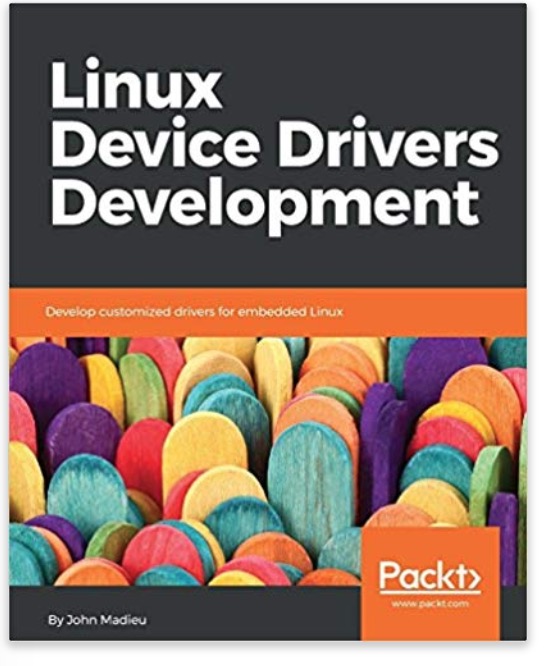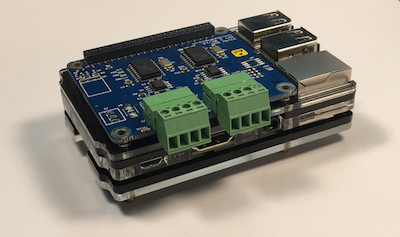Recent Posts
Device Drivers Development For Embedded Linux
Posted by on
Key Features
- Learn to develop customized Linux device drivers
- Learn the core concepts of device drivers such as memory management, kernel caching, advanced IRQ management, and so on.
- Practical experience on the embedded side of Linux
Book Description
Linux kernel is a complex, portable, modular and widely used piece of software, running on around 80% of servers and embedded systems in more than half of devices throughout the World. Device drivers play a critical role in how well a Linux system performs. As Linux has turned out to be one of the most popular operating systems used, the interest in developing proprietary device drivers is also increasing steadily.
This book will initially help you understand the basics of drivers as well as prepare for the long journey through the Linux Kernel. This book then covers drivers development based on various Linux subsystems such as memory management, PWM, RTC, IIO, IRQ management, and so on. The book also offers a practical approach on direct memory access and network device drivers.
By the end of this book, you will be comfortable with the concept of device driver development and will be in a position to write any device driver from scratch using the latest kernel version (v4.13 at the time of writing this book).
What you will learn
- Use kernel facilities to develop powerful drivers
- Develop drivers for widely used I2C and SPI devices and use the regmap API
- Write and support devicetree from within your drivers
- Program advanced drivers for network and frame buffer devices
- Delve into the Linux irqdomain API and write interrupt controller drivers
- Enhance your skills with regulator and PWM frameworks
- Develop measurement system drivers with IIO framework
- Get the best from memory management and the DMA subsystem
- Access and manage GPIO subsystems and develop GPIO controller drivers
Raspberry Pi 3 System With Dual CAN Bus Interface
Our Raspberry Pi 3 System With CAN Bus Interface (PiCAN2) comes with a pre-installedRaspbian operating system. The Raspberry Pi 3 is the third generation Raspberry Pi. It replaced the Raspberry Pi 2 Model B in February 2016.
The PiCAN2 board provides Controller Area Network (CAN) Bus capabilities for the Raspberry Pi. It uses the Microchip MCP2515 CAN controller with MCP2551 CAN transceiver. Connection are made via 4-way screw terminals.
There is an easy-to-install SocketCAN driver, and programming can be accomplished in C or Python.
 Loading... Please wait...
Loading... Please wait...


